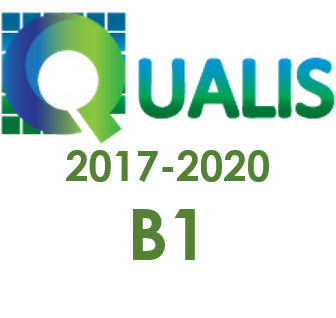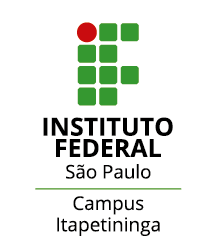Effects of metacognitive capacity, grade level and gender on secondary school students’ scientific creativity
Keywords:
Creatividad científica. Destrezas metacognitivas. Nivel académico. Género. Educación Secundaria.Abstract
The objective of this study was to investigate the effects of metacognitive capacity, grade level (academic training) and gender on secondary school students’ scientific creativity. A total of 135 Spanish secondary school students, 63 boys and 72 girls, tookpart in this study. A questionnaire on metacognitive skills and a questionnaire that assesses cientific creativity were administered to participants. From the Pearson’s correlations of the study variables and from a regression analysis it can be concluded that academic training received is the main contributor to scientific creativity, although it explains only a small percentage of variance.
Downloads
References
ABRAHAM, A. Genderand creativity: an overview of psychological and neuroscientific literature. Brain Imaging and Behavior, v. 10, n. 2, p. 609-618, 2016.
AKTAMIS, H.; ERGIN, Ö. The effect of scientific process skills educationon students' scientific creativity, science attitudes and academic achievements. Asia-Pacific Forumon Science Learning and Teaching, v. 9, n. 1, p. 1-21, 2008.
BLAMIRES, M.; PETERSON, A. Can creativity be assessed? Towards an evidence-informed framework for assessing and planning progress in creativity. Cambridge Journal of Education, v. 44, n. 2, p. 147-162, 2014.
BODEN, M. Creativity & knowledge. In: CRAFT, A.; JEFFERY, B; LEIBLING, M. (Eds.). Creativity in education. London: London Continuum Publishing, 2001, p. 95-102.
M. BOEKAERTS, M.; CASCALLAR, E. How far have we moved toward the integration of theory and practice in self-regulation? Educational Psychology Review, v. 18, n. 3, p. 199–210, 2006.
CHARYTON, C.; SNELBECKER, G. E. General, artisticandscientificcreativityattributes of engineeringand music students. CreativityResearchJournal, v. 19, n. 2-3, p. 213-225, 2007.
DEHAAN, R. L. (2009). Teaching creativity and inventive problem solving in science. CBE—Life Sciences Education, v. 8, n. 3, p. 172-181, 2009.
EPSTEIN, R. S. Cognition, Creativity, and Behavior: Selected Essays. Westport, CT: Praeger, 1996.
EPSTEIN, R. S; SCHMIDT, M.; WARFEL, R. Measuring and training creativity competencies: validation of a new test. Creativity Research. Journal, vol.20, n. 1, p. 7-12, 2008.
FELDMAN, D. H.; BENJAMIN, A. C. Creativity and education: An American retrospective. Cambridge Journal of Education, v. 36, n. 3, p. 319-336, 2006.
GARDNER, H. Creating Minds: An Anatomy of Creativity Seen through the Lives of Freud, Einstein, Picasso, Stravinsky, Eliot, Graham, and Ghandi. New York: Harper Collins, 1993.
HARGROVE, R. A.; NIETFELD, J. L. (2015) The Impact of Metacognitive Instruction on Creative Problem Solving. The Journal of Experimental Education, v. 83, n. 3, p. 291-318, 2015.
HU, W.; ADEY, P. A scientific creativity test for secondary school students. International Journal of Science Education, v. 24, n. 4, p., 389-403, 2002
JAUŠOVEC, N. Metacognition in creative problem solving. In: RUNCO, M. A. (Ed.), Creativity research. Problem finding, problem solving, and creativity. Norwood, NJ: Ablex Publishing, 1994, p.77-95.
JEFFREY, B.; CRAFT, A. Teaching creatively and teaching for creativity: Distinctions and relationships. Educational Studies, v. 30, n. 1, p. 77 –87, 2004.
KIND, P.M.; KIND, V. Creativity in science education: Perspectives and challenges for developing school science. Studies in Science Education, v. 43, n. 1, p. 1–37, 2007.
KOZBELT, A.; BEGHETTO, R. A.; RUNCO, M. A. (2010). Theories of creativity. In: KAUFMAN, J; STERNBERG, R. (Eds.), The Cambridge Handbook of Creativity, 2nd edition. Cambridge: Cambridge University Press, 2010, p. 20-47.
LEE, M. K.; ERDOGAN, I. The effect of science–technology–society teaching on students’ attitudes toward science and certain aspects of creativity. International Journal of Science Education, v. 29, n. 11, p. 1315-1327, 2007.
NEWTON, L. D.; NEWTON, D. P. (2014). Creativity in 21 st-century education. Prospects, v. 44, n. 4, p. 575-589, 2014.
OFFICE FOR STANDARDS IN EDUCATION. Expect the unexpected: Developing creativity in primary and secondary schools. London: HMSO, 2003.
PESUT, D. J. Creative thinking as a self-regulatory metacognitive process: A model for education, training and further research. The Journal of Creative Behavior, v. 24, n. 2, p. 105–110, 1990.
SAHLBERG, P. Rethinking accountability in a knowledge society. Journal of Educational Change, v. 11, n. 1, p. 45-61, 2010.
SCHRAW, G.; CRIPPEN, K. J.; HARTLEY, K. Promoting self-regulation in science education: Metacognition as part of a broader perspective on learning. Research in science education, v. 36, n. 1-2, p. 111-139, 2006.
SHARMA, N. (2015). Scientific creativity in relation to cognitive style and achievement in Science of secondaryschoolstudents. Educational Quest-An International Journal of EducationandApplied Social Sciences, v. 6, n. 1, p. 25-29, 2015.
SHARP, C. Developing Young Children's Creativity: what can we learn from research? Topic, v. 32, p. 5-12, 2004.
SPERLING, R. A.; HOWARD, B. C.; MILLER, L. A.; MURPHY, C. Measures of children's knowled geand regulation of cognition. ContemporaryEducationalPsychology, v. 27, n. 1, p. 51-79, 2002.
TABACH, M.; FRIEDLANDER, A. School mathematics and creativity at the elementary and middle-grade levels: how are they related? ZDM, v. 45, n. 2, p. 227-238, 2013.
VAN DER STEL, M.; VEENMAN, M. V.; DEELEN, K.; HAENEN, J. Thein creasingrole of metacognitive skills in math: A cross-sectional study from a developmental perspective. ZDM, v. 42, n. 2, p. 219-229, 2010.
VEENMAN, M. V.; SPAANS, M. A. Relation between intellectual and metacognitive skills: Ageand task differences. Learningand Individual Differences, v. 15, n. 2, p. 159-176, 2005.
YANG, K. K.; LIN, S. F.; HONG, Z. R.; LIN, H. S. Exploring the assessment of and relationship between elementary students’ scientific creativity and science inquiry. Creativity Research Journal, v. 28, n. 1, p. 16-23, 2016.
Downloads
Published
How to Cite
Issue
Section
License
Copyright (c) 2020 Revista Internacional de Pesquisa em Didática das Ciências e Matemática

This work is licensed under a Creative Commons Attribution-NonCommercial-NoDerivatives 4.0 International License.




